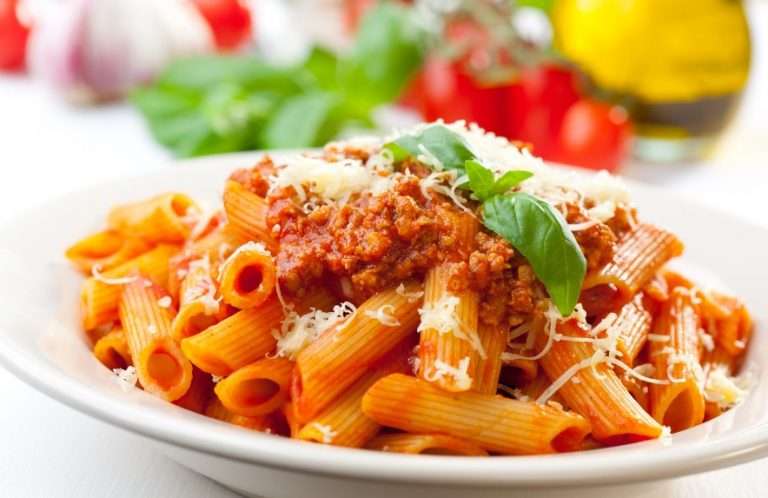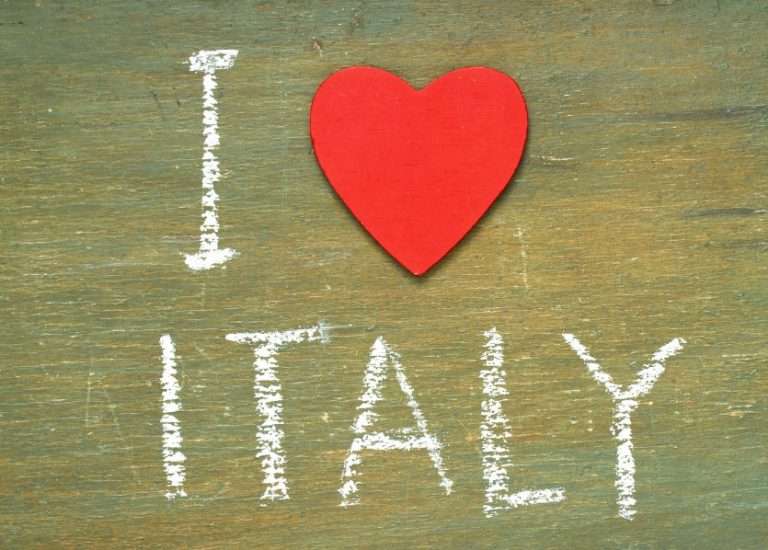How to Say Cheers in Italian: 21 Best Ways (w. Audio)
Discover the art of saying cheers in Italian and Italian toasting etiquette for various occasions. In this blog post, you’ll learn how to make a toast in Italian, which Italian phrases are suitable for festive toasting, and the essential Italian toasting rules to ensure impeccable manners.
Toasting holds an important place in Italian culture. Sharing a meal is at the heart of most Italian festivities. A toast always marks these special gatherings.
If you have an upcoming Italian event, are attending a wedding or birthday party, or are hosting an Italian dinner party, knowing how to make a toast in Italian will be helpful.
A Brief History of Toasting
In English, we “toast” or “raise our glasses” (and gently clink them together). This tradition might have its roots in ancient Rome and Greece, where people would drink to the gods and the deceased during feasts.
Toasting rituals date back many years, continuing through the medieval era when people would energetically clink glasses with one another as a form of toasting.
In Italian, “to toast” means “brindare” or “fare un brindisi.” The verb has journeyed from German to Spanish before settling into the Italian language.
7 Popular Ways to Say Cheers in Italian When Drinking

There are numerous ways to toast in Italian, some of which are appropriate for all occasions, while others cater to specific celebrations. Let’s see the seven most common ways to say “Cheers” in Italian.
1. Salute / Alla salute
“Salute” is the most common expression to say cheers in Italian and is a widely used Italian toasting expression.
The word “salute,” which is the Italian for cheers, means “health” in Italian and is equivalent to the French “Santé” or the German “Prosit.” It’s suitable for any occasion that doesn’t call for a more specific toasting phrase.
Alla salute!
Cheers!
Salute!
Bless you!
Note: this cheer is also used after someone sneezes.
Note that “salute,” a common way to express cheers in Italian, is sometimes confused with “saluti,” which means greetings.
As said above, the word “salute” means “health.” You can also say “Salute!” when someone sneezes, wishing them good health, or after someone accomplishes something impressive.
Here are some example sentences in Italian using the word “salute.”
Luisa è’ il ritratto della salute!
Luisa is the picture of health!
La salute di Franco non è delle migliori.
Franco’s health is not the best.
Ho trovato Marco in ottima salute.
I found Marco in very good health.
Ero malato, ma ora sono tornato in buona salute.
I was sick, but now I am well.
2. Cin cin
The old-fashioned toasting all-Italian expression. Various stories surround this toasting cheer (pronounced “chin chin”), most tracing back to Chinese sayings. According to one version, ancient traders introduced this expression to Italy, where it eventually gained traction.
3. Alla nostra / Alla tua / Alla vostra / Alla sua / Alla loro / Alla mia
“Alla nostra” translates to “to our (health)” and is a prevalent, versatile, and practical expression for toasting that you can use in most scenarios. You can use it to toast to the group gathered around the table, similar to “Cheers” in English, “Santé” in French, and “Prosit” in German.
Three classic examples of these Italian cheers are:
- Alla nostra! – Cheers to our health!
- Beviamo alla nostra! – Let’s drink to our health!
- Alla nostra salute! – To our health!
Suppose you are cheering a specific individual or a group of people. In that case, you can say:
- “Alla tua” / “Alla vostra” (cheers to your health) if addressing them directly
- “Alla sua” / “Alla loro” (cheers to her/his/their health)
- Finally, you can also say “alla mia” (cheers to my health) in case you’re toasting to yourself. This last example is a bit awkward, but we’ve seen it in Italy.
4. Facciamo un brindisi
This phrase is the most popular way to say “Let’s make a toast” in Italian and is used when you want to propose a toast to the group.
5. Alla faccia di chi ci vuole male
Though not the most polite, this phrase is still amusing. The literal translation is “In the face of those who wish us ill.” It is often used informally among friends.
6. Viva ___!
Viva (+ person, people, or things being cheered) is another widespread expression for toasts. In most cases, “Viva” means “hurray.” (For example: “Viva gli sposi” – Hurray for the bride and groom). Still, in the context of a toast, it is also used independently as an equivalent to “salute” (“cheers”).
7. Cento di questi giorni
This expression is used to wish someone “a hundred days like this one,” signifying that you’re toasting to the person living a hundred years more, filled with happy moments.
Suggested Reading: How to Say Good Luck in Italian: 25 Sayings & Phrases
Other Italian Cheers for Specific Occasions

If you’re attending a birthday party, a wedding, or a special event, you may prefer to use more unique toasting phrases.
Auguri
Auguri in Italian means “wishes,” as in “best wishes,” and is used for cheering at birthdays and other occasions when you want to wish someone well. You can say Auguri, Tanti Auguri, or Buon Compleanno (Happy Birthday).
Suggested Read: Discover the rich history and cultural significance of happy birthday songs in Italian.
Congratulazioni
Congratulazioni in Italian means “congratulations.” Like in English, you would toast by saying congratulations on special occasions such as a college degree celebration, a job promotion, a business event, and any time you want to highlight and celebrate achievement.
Buon Anno
It is an Italian tradition to toast and wish everyone a happy and prosperous new year. Buon Anno means Happy New Year in English.
Buon Natale
Buon Natale in Italian means Merry Christmas. Used to spread joy and cheer during the Christmas season, this phrase is used to toast and celebrate the festive holiday.
Suggested Read: Discover our carefully selected collection of top resources for learning Italian – the ultimate starting point for your language adventure.
Toasting at Italian Weddings

As Italians love to celebrate, you may find yourself at an Italian wedding, and knowing what to say is essential. You’ll hear people toasting with “viva gli sposi” at Italian weddings, which means “hurray for the bride and groom.”
Here are some common phrases you can use or will hear if you’re invited to an Italian wedding.
- Congratulazioni! – Congratulations!
- Congratulazioni agli sposi! – Congratulations to the newlyweds!
- Vi auguro il meglio. – I wish you the very best.
- Possa il vostro amore vivere per sempre. – May your love live forever.
- Possa la vostra gioia durare cento anni. – May your joy last a hundred years.
- Viva l’amore! – Long live love!
- Facciamo un brindisi! – Let’s make a toast!
- Propongo un brindisi! – I propose a toast!
- Vorrei fare un brindisi! – I would like to make a toast!
With this knowledge, you’ll be well-equipped to make a toast in Italian for any occasion. So, whether you’re attending a birthday party, a wedding, or simply enjoying dinner with friends, these phrases will ensure you can express cheers in Italian with style and confidence.
Enjoy the celebrations and spread joy with heartfelt toasts that resonate with Italian culture and tradition.
The Art of Toasting in Italian
Being well-versed in Italian toasting etiquette is crucial, especially if you find yourself in a formal setting. It’s essential to understand the different toasting rules.
However, only some may apply to casual family dinners or gatherings with friends. Nonetheless, if you’re attending a formal event or want to be on top of your etiquette game, here’s what you need to know.
- Avoid toasting with water. – In Italian culture, toasting with water is thought to bring bad luck. The same goes for empty glasses – it’s considered unlucky as well. Ensure you always have something in your glass when raising it for a toast.
- Wait for the host to initiate the toast. – In a formal setting, the dinner host is the only person allowed to begin the toast. For birthdays, the person celebrating the birthday usually starts with a thank you speech or addresses the table for a collective cheer.
- Make eye contact during the toast. – Be sure to look into the eyes of the person you’re toasting with; otherwise, you risk seven years of bad luck.
- Don’t cross someone’s arm while toasting. – If you’re toasting with guests across the table, ensure you’re not crossing anyone else’s arms. The origin of this superstition is uncertain, but like crossed silverware, and it can symbolize conflict. Moreover, it can obstruct someone else’s toast and potentially result in spilled drinks – so it’s best to avoid it.
- Refrain from tapping on the glass to get the guests’ attention. – This action is considered impolite in Italian culture.
- Lastly, when toasting, it’s common for everyone to clink glasses in the center of the table rather than with each guest.
By following these Italian toasting rules, you’ll be able to enjoy any celebration with grace and respect for Italian customs, impressing your hosts and fellow guests alike.
Suggested Reading:







